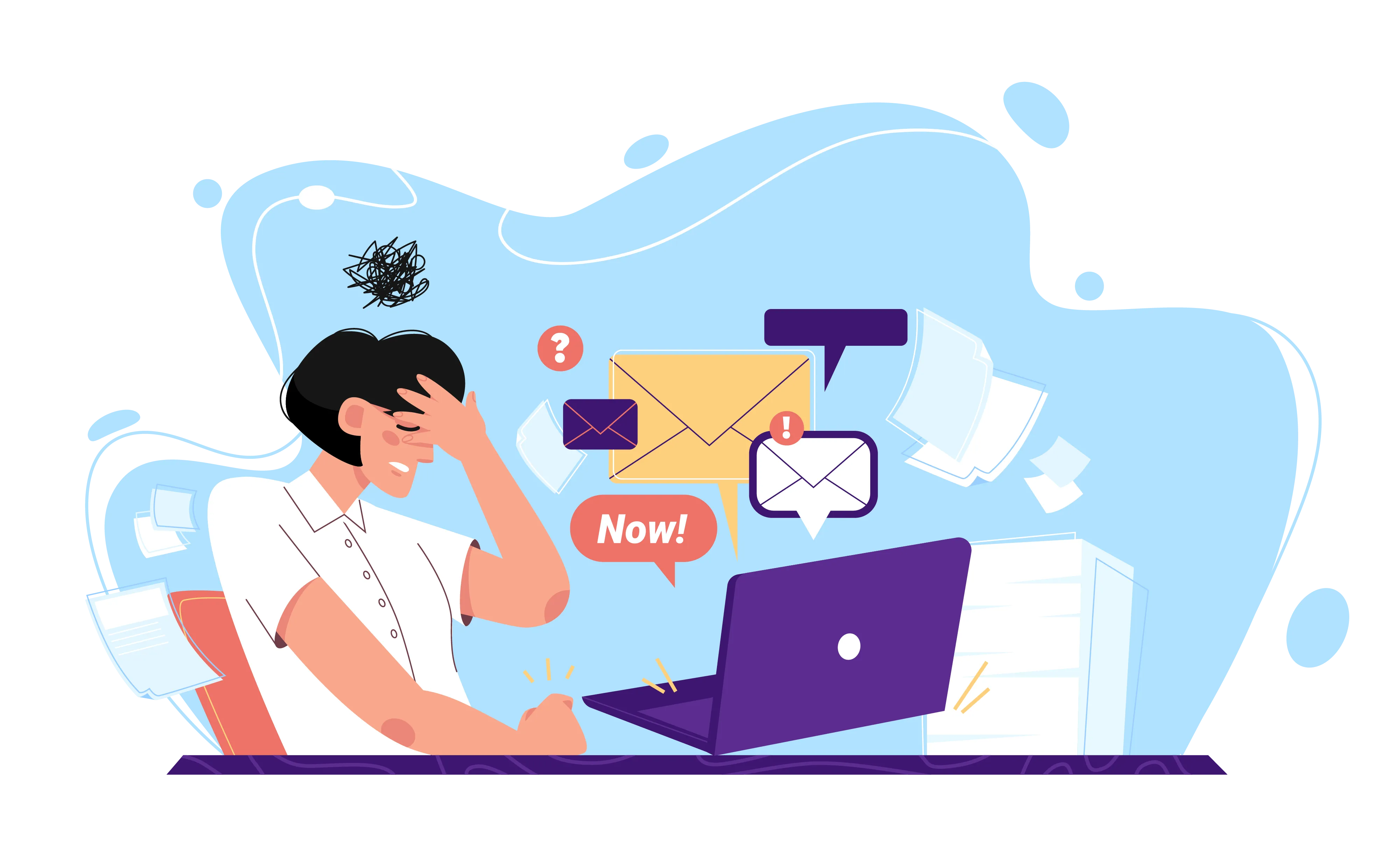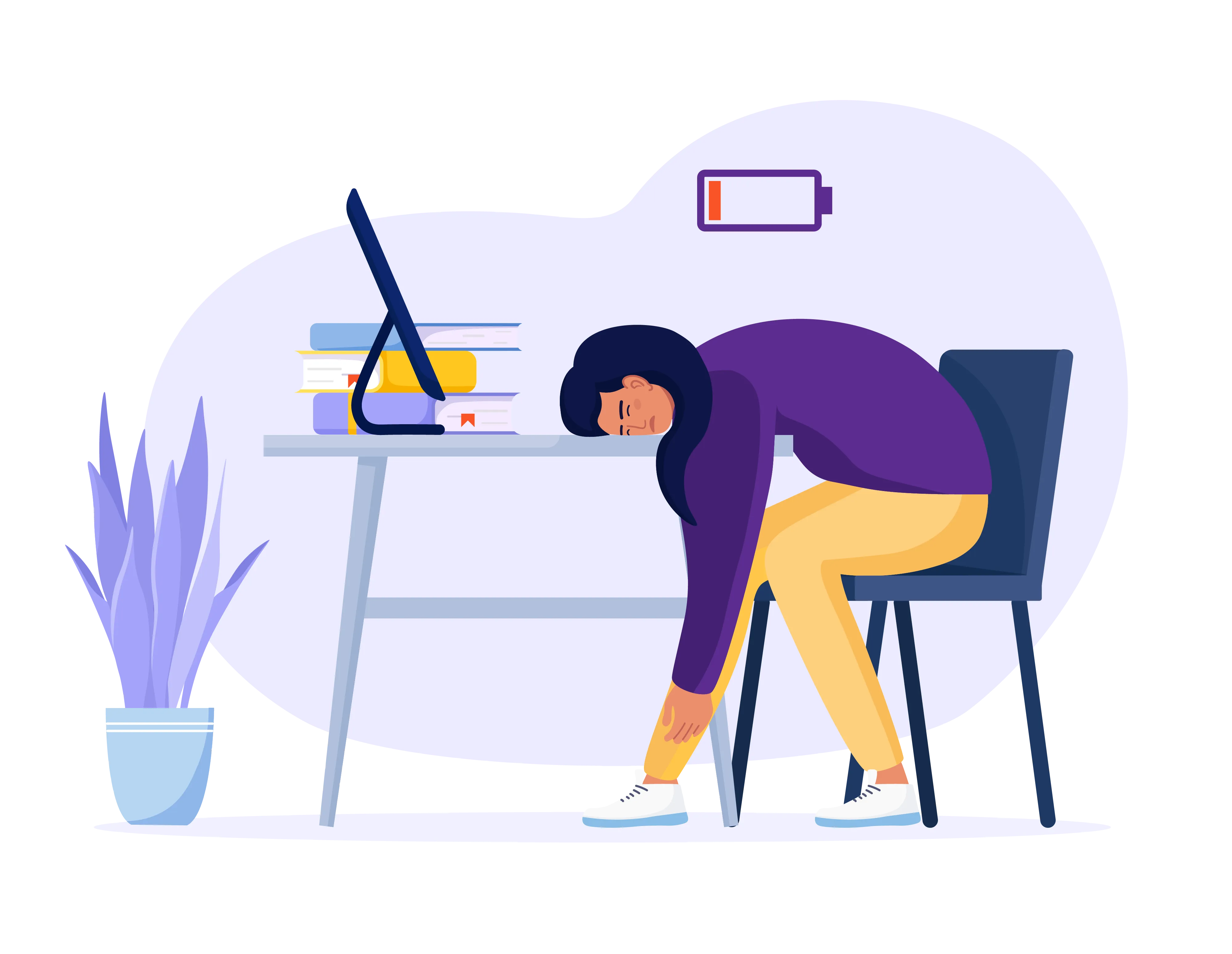Psychiatrist | 5 min read
5 Effective Ways to Cope With Workplace Depression and Help Others Too!
Medically reviewed by
Table of Content
Key Takeaways
- Around 42.5% of private sector employees in India face depression.
- Losing interest in work is considered a sign of workplace depression.
- Exercising and practicing mindfulness can help manage depression.
Globally, around 264 million people suffer from depression. A study by the WHO reported that depression and anxiety lead to loss of productivity, costing the world economy an estimated US$ 1 trillion every year [1]. Workplace depression is real and needs to be addressed. In India, lost productivity due to mental health issues amounts to annual losses of over $100 million [2].
A recent report states that 42.5% of private-sector employees in India suffer from anxiety and depression [3]. The symptoms for employees dealing with depression at work can vary and may include lack of focus and confidence, boredom, or loss of interest in tasks. A negative working environment can also be a cause of depression in the workplace.
Read on for some tips that will help you in coping with depression at work and mentally reset yourself.
Additional Read: Mental Health and Wellbeing: 8 Important Ways to Mentally Reset Now!
Signs of workplace depression
While there are many reasons why you may be experiencing workplace depression, below are some signs that may indicate you are depressed.
- Feeling worried at work
- Feeling bored at work
- Lack of interest in work
- Feelings of hopelessness
- Working for irregular hours
- Lack of control over work issues
- Experiencing sleep disturbances
- Feeling that your job is in jeopardy
- Lack of focus in work-related tasks
- Inability to maintain work-life balance
- Lack of confidence in carrying out work
- Feeling low at the thought of work
- Prolonged/persistent feelings of sadness
- Getting irritated, angry, or frustrated at work
- Skipping work often or reaching late to office regularly
Ways to deal with depression at work
● Identify the stressors and replace them with things you love
The first step in coping with depression is to identify what is making your depression worse and recognize the problem areas. Are you unable to focus or meet deadlines? Do you find yourself avoiding conversations with colleagues? Once you identify the stressors, create an action plan and set realistic goals. Find work tasks that bring you satisfaction or even a co-worker to have your lunch with! Big and small changes like these can really help you cope.
● Share your problems with a friend, colleague, or boss
Workplace depression can often compel you to stay isolated. However, that will only make your condition worse. The stigma around depression also plays a part. People often don’t share their mental health conditions with the fear of being judged. Unfortunately, mental health discrimination discourages open dialogue at the workplace. But be sure to call a friend or a family member and share your problem. You may also cry if you need to!
If you are unable to handle the stress or lack control while dealing with workplace depression, talk with your manager or to someone from HR. Take a sick leave when you feel low or create a plan to handle the work better. Your boss may reduce your share of work or even ask a colleague to help you complete it.

● Get help from a mental health professional
Some people may need professional help to manage workplace depression. Dealing with mental health problems is important to bring your personal and professional life back
on track. You may consider psychotherapy or talk therapy. Your therapist or doctor may also suggest antidepressants or help you with personalized strategies.
● Find a more supportive working environment
A study by the University of South Australia found that a toxic workplace triples the risk of depression [4]. If your bosses, colleagues, or office environment is causing depression in the workplace, consider switching your job. Find a work environment with a supportive staff and company policies.
Some companies offer free employee assistance programs (EAP) that help staff manage their personal and work-related mental health issues. According to the International Employee Assistance Professional Association, over 95% of companies having above five thousand employees have EAPs [5].
● Take breaks, stay physically active, and practice mindfulness
If you feel demotivated, overwhelmed, exhausted, irritated, or lose focus while dealing with depression at work, try taking short, meaningful breaks. Go to another room, do some deep breathing exercises or meditate, take a walk, call a friend, or grab a coffee. Moving your body leads to better blood flow to your brain, which helps you clear brain fog. Adopt self-care practices in your routine and practice mindful meditation. Exercising can also treat mild to moderate depression as effectively as antidepressants without any side effects [6].
Additional Read: What is The Importance of Mindfulness Meditation and How To Do It?
How to help others dealing with work depression
If you notice your employees or colleagues suffering from the signs of workplace depression such as lack of concentration or frequent low moods, offer them some help. Talk to them, listen to them, and share their workload to lighten their burden. You can also encourage them to seek professional help or ask your manager confidentially to help them overcome their mental issues.
Apart from the tips mentioned above, remember that every healthy little step can boost your mental health. For instance, you can create work strategies that will help you throughout the day. This could include taking short breaks every few hours, connecting with your friends and family after work, and following healthy lifestyle habits. Do not neglect medical care for workplace depression. Consult with a mental health expert on Bajaj Finserv Health by booking an online appointment. This way, you can share instances about your depression and the workplace to get proper professional advice. This is sure to help you enjoy your profession better and make each workday happier!
References
- https://www.who.int/teams/mental-health-and-substance-use/mental-health-in-the-workplace
- https://www.ncbi.nlm.nih.gov/pmc/articles/PMC4525427/
- https://economictimes.indiatimes.com/magazines/panache/mental-health-may-hurt-india-to-tune-of-1-03-trillion-heres-a-dose-for-cos/articleshow/71045027.cms?from=mdr
- https://www.eurekalert.org/news-releases/708076
- https://www.eapassn.org/FAQs
- https://www.helpguide.org/articles/healthy-living/the-mental-health-benefits-of-exercise.htm
- https://www.thisiscalmer.com/blog/what-is-workplace-depression
- https://www.healthline.com/health/depression/work-depression#causes
- https://psychcentral.com/depression/depression-at-work#how-can-your-workplace-support-you
- https://www.ehstoday.com/safety/article/21905931/five-strategies-for-dealing-with-workplace-depression
- https://www.monster.com/career-advice/article/depression-at-work
- https://www.eurekalert.org/news-releases/708076
Disclaimer
Please note that this article is solely meant for informational purposes and Bajaj Finserv Health Limited (“BFHL”) does not shoulder any responsibility of the views/advice/information expressed/given by the writer/reviewer/originator. This article should not be considered as a substitute for any medical advice, diagnosis or treatment. Always consult with your trusted physician/qualified healthcare professional to evaluate your medical condition. The above article has been reviewed by a qualified doctor and BFHL is not responsible for any damages for any information or services provided by any third party.



